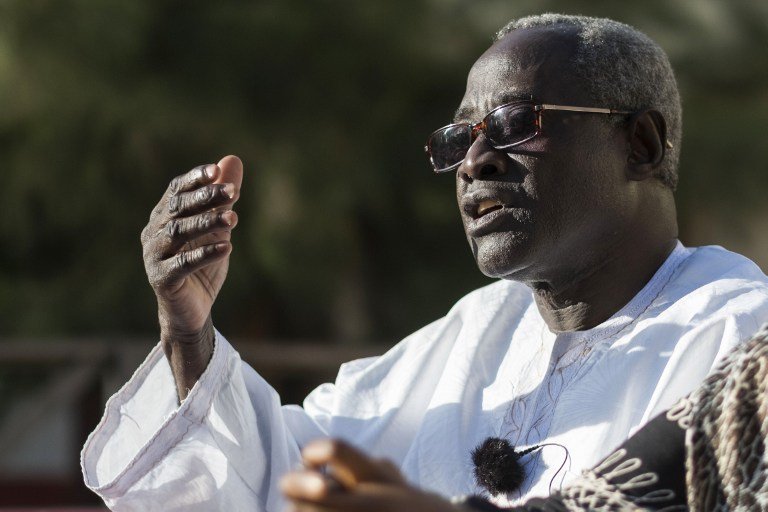Gambia's Jammeh leaves power after 22 years
Updated | By AFP
Gambian leader Yahya Jammeh flew out Saturday from the country he ruled for 22 years to cede power to President Adama Barrow and end a political crisis.

Jammeh refused to step down after a December 1 election in which Barrow was declared the winner, triggering weeks of uncertainty that almost ended in a military intervention involving five other west African nations.
The longtime leader, wearing his habitual white flowing robes, waved to supporters before boarding a small, unmarked plane at Banjul airport alongside Guinea's President Alpha Conde after two days of talks over a departure deal.
He landed in Conakry, Guinea's capital but set off again for Equatorial Guinea, where he will remain in exile, the president of the Economic Community Of West African States (ECOWAS), Marcel Alain de Souza, said at a Dakar press conference.
"No legislative measures" would be taken that would infringe the "dignity, security, safety and rights" of Jammeh or his family, ECOWAS said in a joint declaration with the African Union and United Nations.
Jammeh could return to The Gambia when he pleased, the statement added, and property "lawfully" belonging to him would not be seized.
Jammeh finally said he would step aside in the early hours of Saturday morning and hand power to Barrow, who has been in neighbouring Senegal but is expected back in The Gambia imminently.
"I call on President Barrow to come in immediately and take over the supreme responsibility of president, head of state, commander in chief and first citizen of our republic," Jammeh said, according to remarks read out on state television before he left the country.
It would be improper not to "sincerely wish him and his administration all the best," he added.
Jammeh took power in a 1994 coup from the country's only other president since independence from Britain, Dawda Jawara, making this The Gambia's first democratic transition of power.
The choice of Equatorial Guinea for his exile helps ease concerns that Jammeh might interfere in his nation's politics if he stayed in Guinea, whose border is not far from The Gambia's eastern region.
Scenes of jubilation broke out almost immediately on streets near Banjul, the port capital, after the news filtered out that Jammeh had gone.
With Jammeh gone, all eyes will be on the Barrow administration as they make their first steps as a government of reform and development.
Army chief Ousman Badjie, a former Jammeh loyalist, has pledged allegiance to Barrow along with top defence, civil service and security chiefs.
The first priority will be to help the tens of thousands who have fled in recent weeks fearing a bloody end to the crisis to return safely, Touray said earlier Saturday.
Show's Stories
-
Dad teaches his toddler technique to calm down
This is just another reason why engaged and invested fathers absolutely ...
The Workzone with Alex Jay 2 hours ago -
Bride tries to search for a way to follow up on wedding RSVPs
Do you RSVP to events?
The Workzone with Alex Jay 2 hours ago